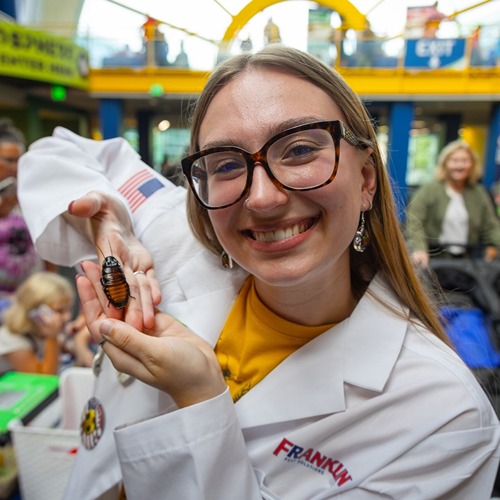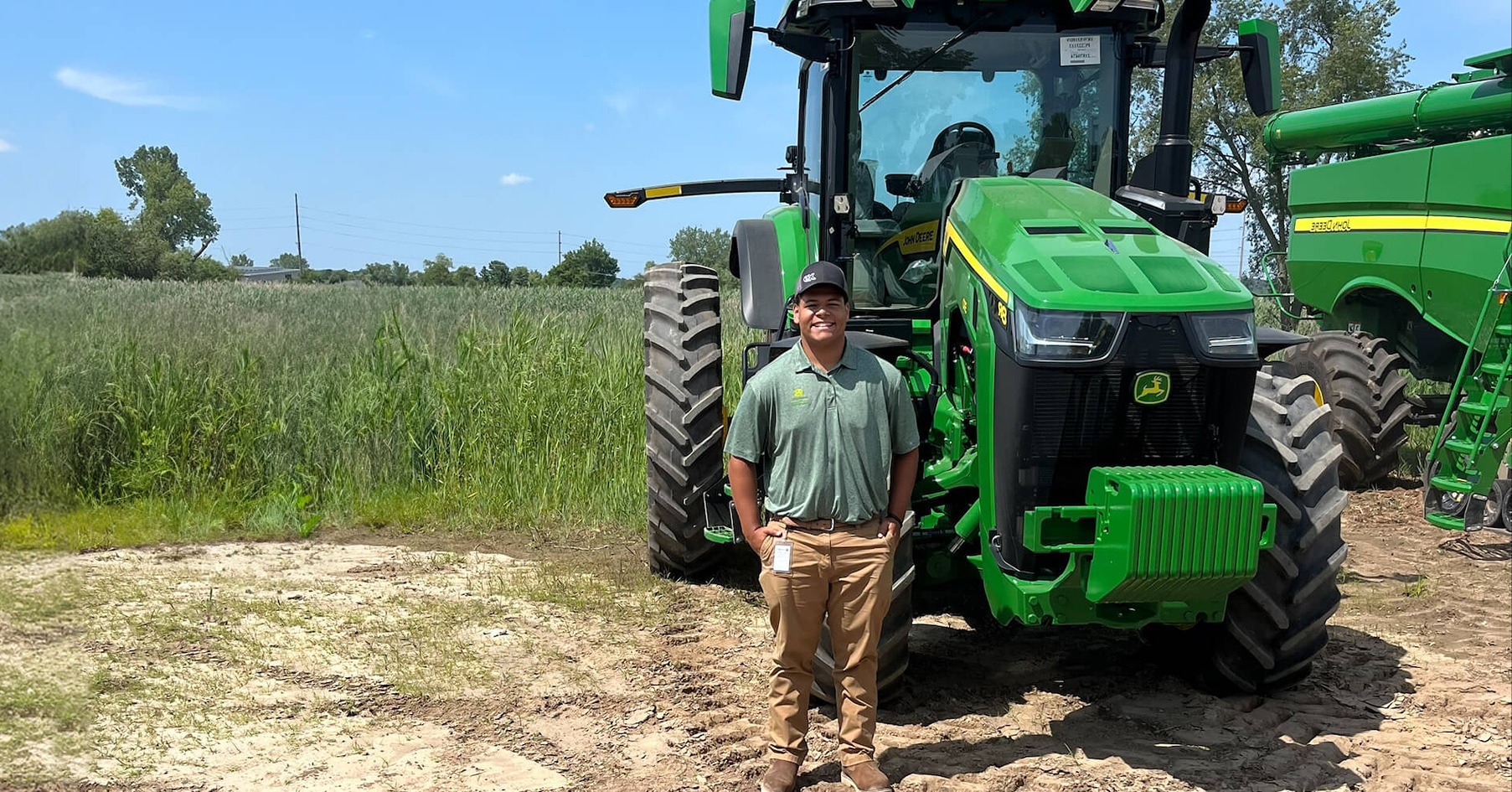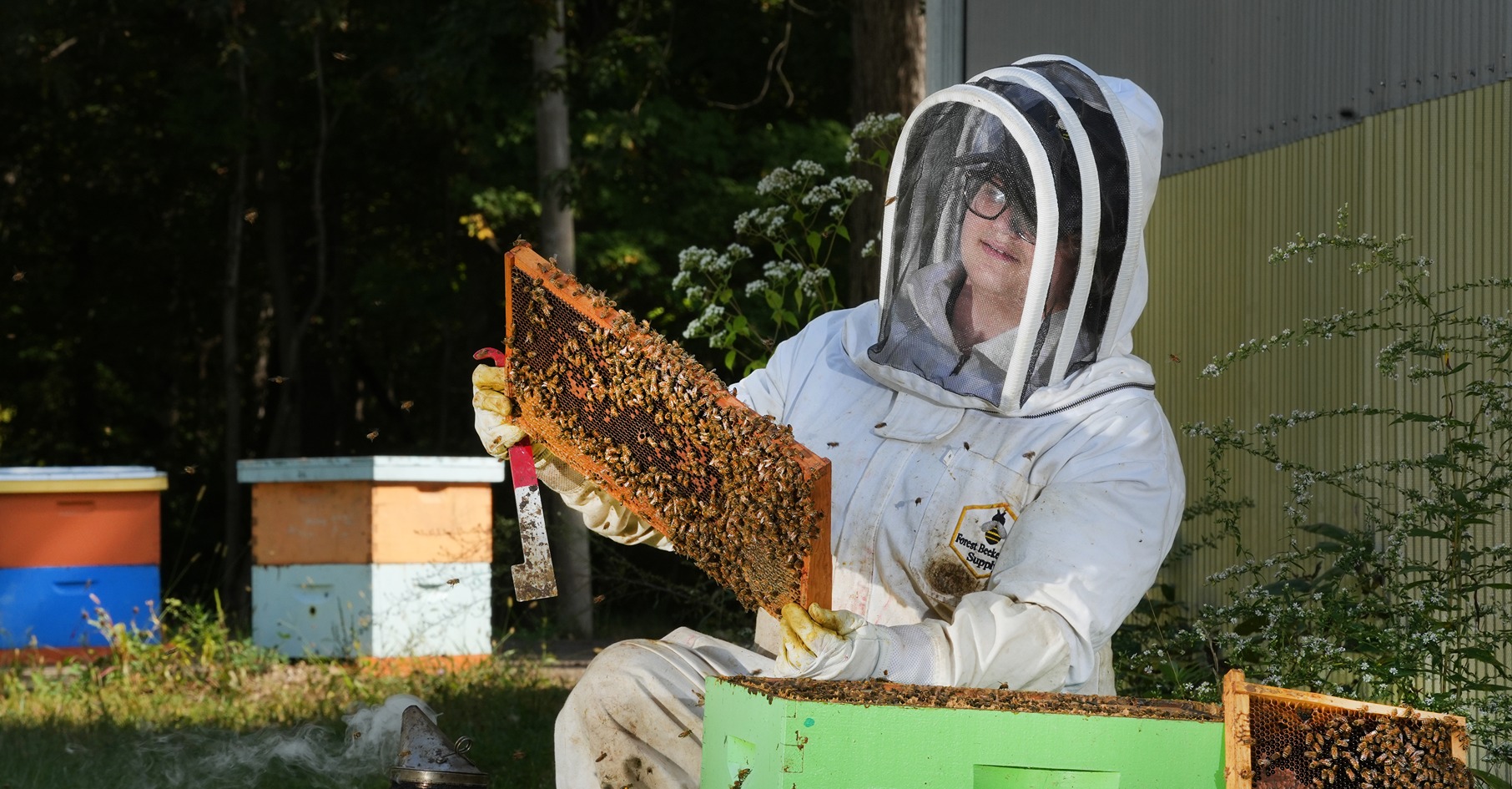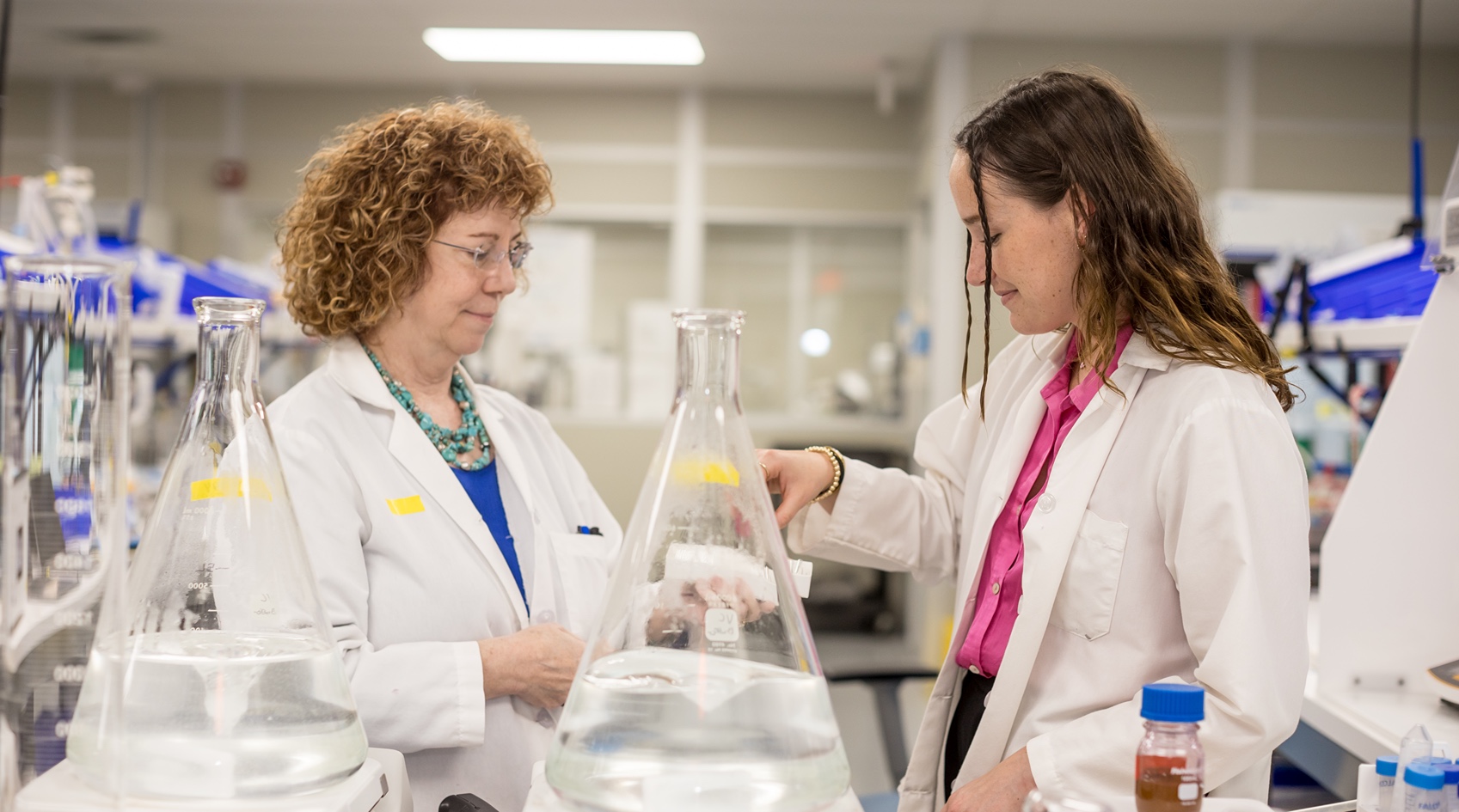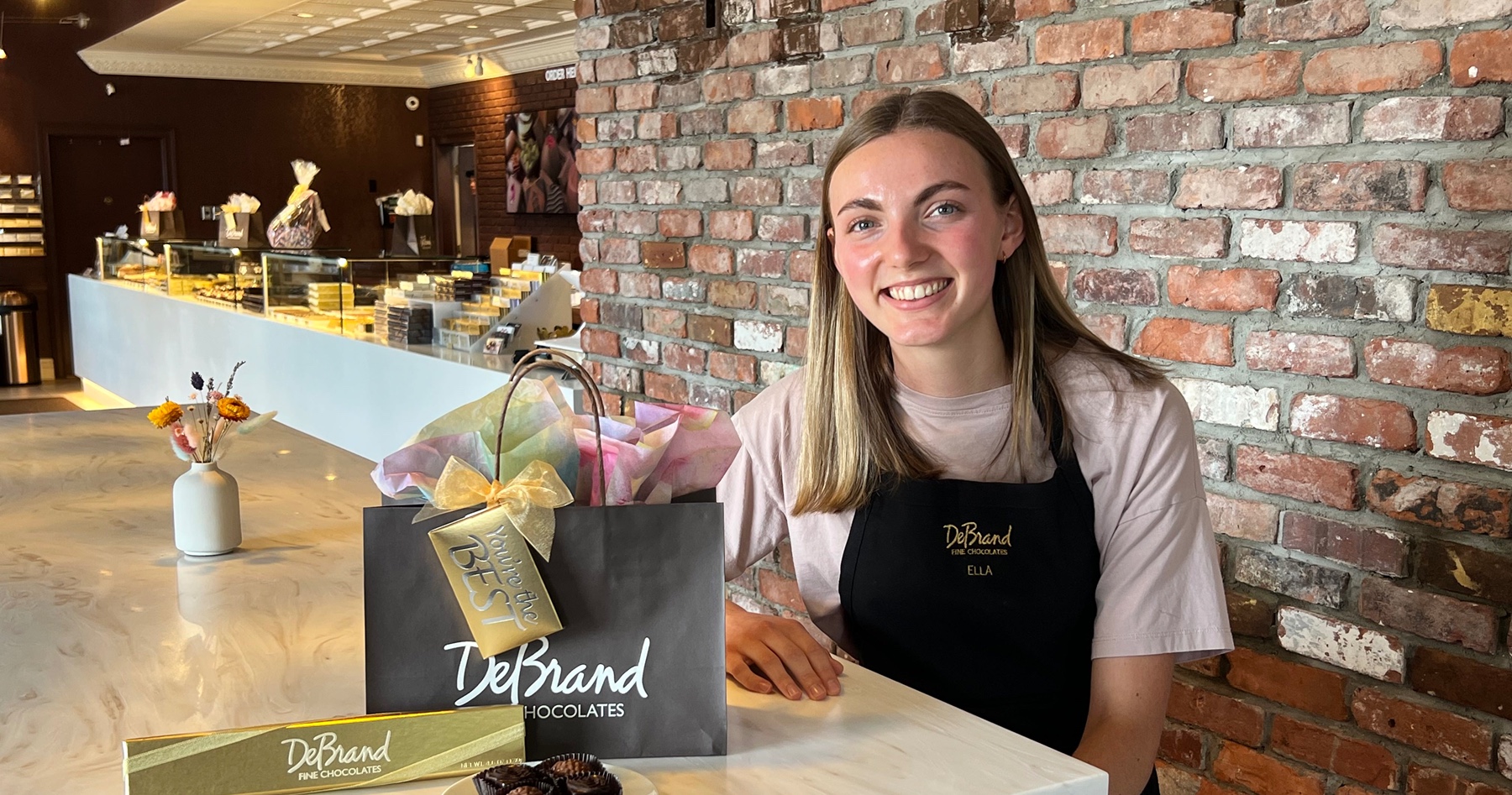Cultivating the Future: Emily Carlisle

From zoo teen to intern to seasonal worker
With a toddler’s intelligence, lifespans of 80–90 years and colors ranging from blue to green to red, macaws are truly impressive animals, as Emily Carlisle has discovered working with them this summer. Carlisle, an animal sciences major, has always had a passion for animals, which is what drew her to the Indianapolis Zoo, first as a volunteer, then as an intern and now as a seasonal worker. In each of her roles, Carlisle has been able to learn about the zoo’s animals while also growing her own knowledge and passion for animal care.
Carlisle’s experience with the Indianapolis Zoo began in high school as a “zoo teen.” The zoo teen program allows high schoolers ages 14–18 to work as volunteers that help to educate the public about different topics. Carlisle said, “I was a zoo teen for three years, so I was familiar with the zoo even before the internship.”
The progression from zoo volunteer to zoo intern came naturally to Carlisle when the opportunity arose for this summer.
“I've always loved everyone at the zoo, the environment, all the animals," Carlisle said. "It's one of my favorite places. When I got the opportunity to apply for the internship, I jumped on it.” 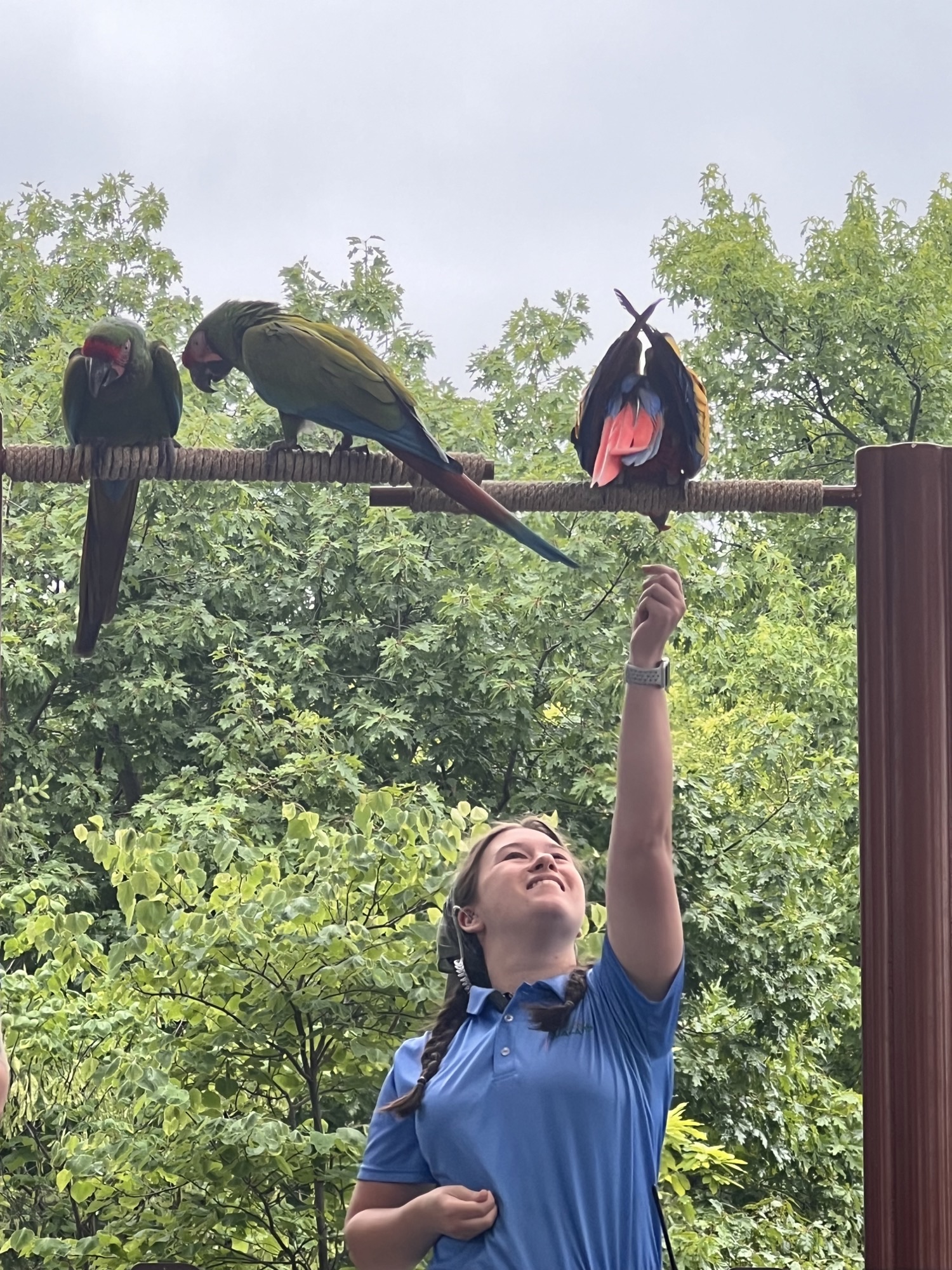
Carlisle was placed into the zoo internship as a macaw keeper, which comes with a full day of responsibilities. At 8 a.m., she arrives at the zoo to help take care of the macaw flocks before the zoo opens at 9 a.m. Each morning, Carlisle weighs one of the three flocks before moving on to prep their diet plans for the day. Then, it is time to start prepping for the macaw fight show and getting things ready behind the scenes.
At 10 a.m., the first Magnificent Macaws flight show takes place, and subsequent shows occur every hour (except 1 p.m.) until 4 p.m. For some shows, Carlisle helps behind the scenes at the flight show while at other times, she remains in the macaw enclosure to complete other tasks.
The zoo also tasked Emily with an internship project about bird behavior. Carlisle, describing the challenges of the project, explained, “One bird was Fiji, who is a blue and gold macaw. Fiji will drink too much water and end up with what we call a ‘water boob.’ Essentially, his crop would get so full of water that it would start extruding, and we don't want that long term. I tried to find ways to limit that behavior because we knew that it was just behavioral water gorging. The other bird was Napoleon, who is a military macaw. He would come in from outside, drink a ton of water, spit it back up and then drink it again. I tried to find a way to limit his regurgitation into the water.”
Although addressing these behavior problems may sound intimidating, Carlisle felt equipped to handle them from her experiences at Purdue.
Carlisle said, “The animal sciences major has been very helpful. There have been a couple of classes that have really applied to my work, specifically my Animal Behavior class. It's been interesting to watch the behaviors and see the behavior-study techniques I learned applied to these birds. They have such incredible behaviors and are very intelligent.”
All of Carlisle’s experiences at the zoo and her Purdue animal sciences classes culminated in an unexpected opportunity: a seasonal position. With the zoo’s approval, Carlisle was able to leave her internship early to move to the available opening at the end of June.
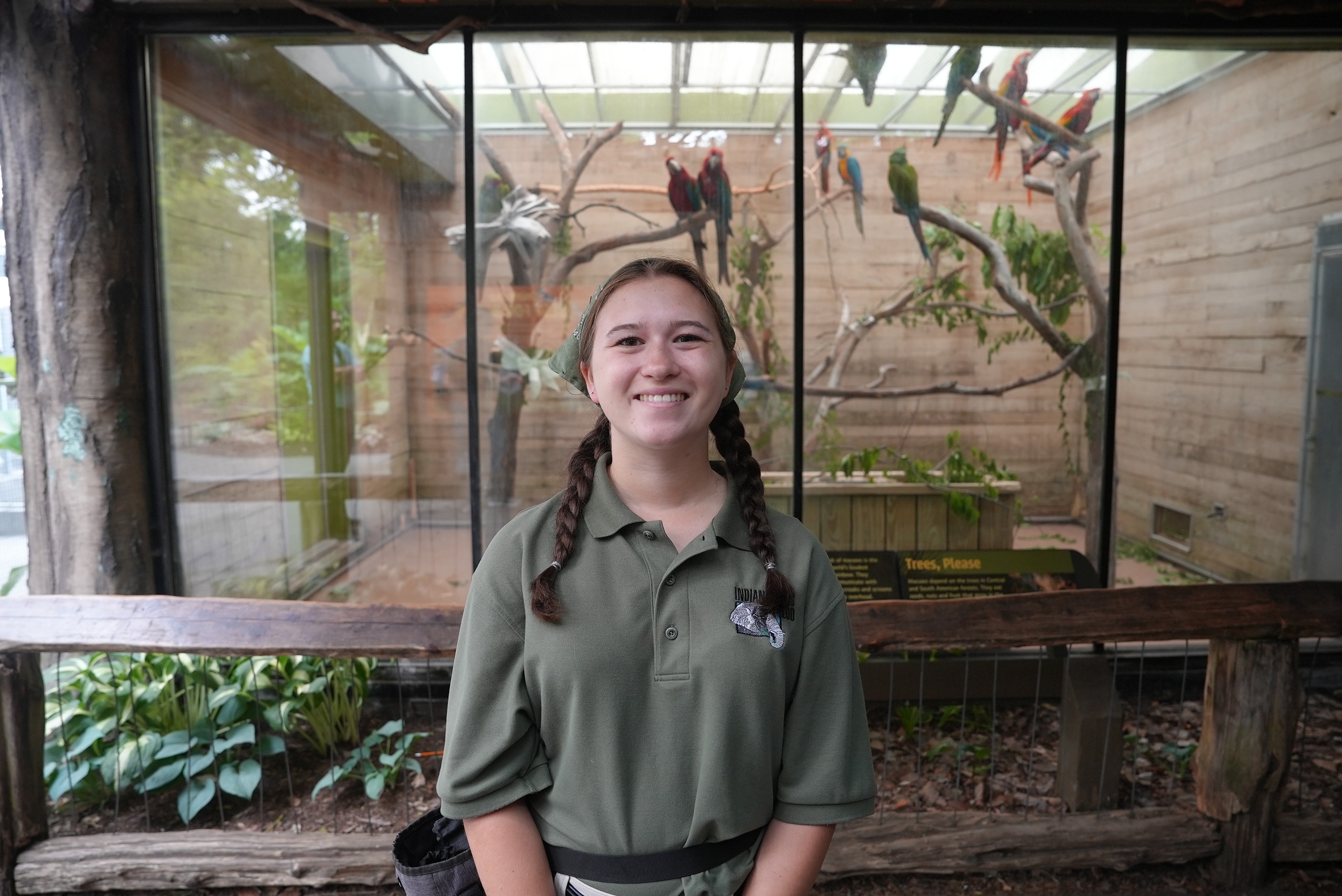 Emily Carlisle stands in front of the macaw enclosure with one of the zoo's three macaw flocks (Photo by Kelsey Getzin)
Emily Carlisle stands in front of the macaw enclosure with one of the zoo's three macaw flocks (Photo by Kelsey Getzin) As a seasonal worker, Carlisle still works with macaws and has many of the same responsibilities with a few new opportunities. For example, she has gotten to be on the stage during the flight show nearly every day, instead of just standing near the stage most days when she was an intern. Also, Carlisle has had the chance to help crate and uncrate the chickens used in the flight show, which has given her even more experience with birds.
Through each of her positions, Carlisle has continued to enjoy caring for animals. “Working at a zoo is not for the faint of heart. It's a lot of work,” Carlisle said. “I'm constantly running around, but I'm loving every second of it. If you really love working with animals, it is absolutely worth it to get to work with them every single day.”
Carlisle plans to graduate in 2025. Afterwards, she will continue pursuing seasonal positions for a few years with the goal of getting a full-time animal care position. Even with these plans, Carlisle is keeping an open mind about her future. “I don't know where I'll end up,” she said, “but I'm excited to see where I do.”
For now, Carlisle is enjoying the rest of her summer position at the zoo. Carlisle said,
“This summer has been wild and went in a totally unexpected direction, and I have loved every minute of it. It has really solidified the fact that this is what I want to do in the future. Getting to work with the animals this closely has been my dream forever, and I’m so happy I finally get to do it.”

